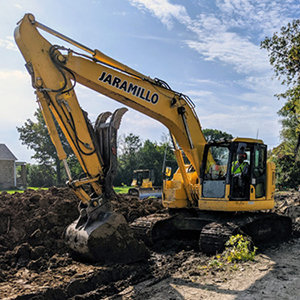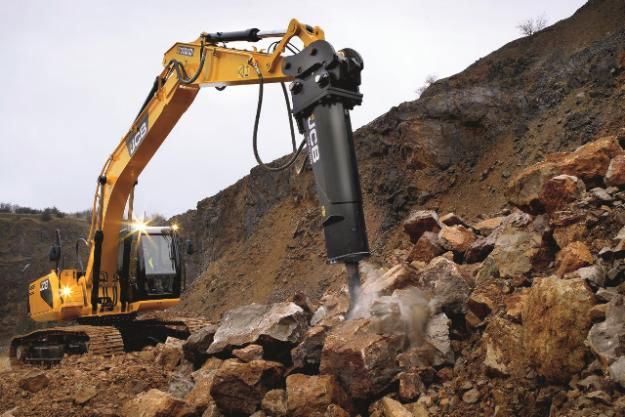Comprehensive Excavation Approaches: Mastering the Principles for Success
The careful planning, accurate execution, and meticulous focus to information needed in excavation jobs require a thorough strategy that incorporates different basic aspects. The real proficiency lies not merely in understanding these fundamentals but in perfectly integrating them to browse the intricacies of excavation jobs with finesse.
Recognizing Excavation Task Preparation

The initial phase of any type of excavation project is the preparation stage, where important decisions are made that can significantly impact the result of the job. Understanding the project range, timeline, and spending plan restrictions is critical for developing an extensive excavation strategy that guarantees the job's success.
One key element of excavation project planning is the advancement of a detailed timeline that details the series of landmarks, activities, and deadlines. This timeline functions as a roadmap for the project team, permitting them to track progress and make essential changes to ensure the project remains on timetable. Additionally, a well-defined budget that accounts for all expenses, including devices service, labor expenses, and products, is important for avoiding expense overruns and hold-ups. By carefully considering all these aspects during the preparation stage, excavation tasks can be carried out effectively and successfully, resulting in effective outcomes.
Soil Analysis and Website Evaluation
Carrying out thorough soil evaluation and website evaluation is an essential step in the preparation stage of any kind of excavation project. Soil evaluation involves figuring out the composition, structure, and homes of the dirt at the excavation site. This information is critical for comprehending the dirt's bearing ability, moisture material, and potential for erosion, which are crucial elements in establishing the excavation approaches and tools required for the project.
Site evaluation goes past soil analysis and includes a more comprehensive analysis of the total website problems. This examination consists of recognizing any type of prospective dangers, such as below ground energies, environmental issues, or unsteady terrain, that might affect the excavation process. By completely reviewing the site, job supervisors can develop effective excavation approaches that focus on safety and security, performance, and environmental protection.
Utilizing advanced technologies like ground-penetrating radar, soil sampling, and drone surveys can improve the accuracy and effectiveness of dirt evaluation and site examination. Investing time and resources in these initial steps can ultimately conserve time and stop expensive hold-ups or complications throughout the excavation process.
Tools Option and Usage
Effective excavation jobs rely heavily on strategic tools choice and usage to guarantee ideal performance and productivity. Selecting the ideal tools for the work is essential in taking full advantage of performance and decreasing downtime. Elements such as the kind of soil, deepness of excavation, and project range play a significant duty in figuring out the most ideal devices for the job at hand.

In enhancement to picking the ideal tools, proper usage is essential to project success. Operators has to be educated to take care of the tools safely and efficiently - excavating ohio. Routine upkeep checks and prompt repair work help stop break downs and make sure regular efficiency throughout the project
Precaution and Regulations Conformity
In the world of excavation jobs, prioritizing safety steps and conformity with policies is extremely important to guaranteeing a safe and legitimately audio functional setting. Precaution include a variety of methods, consisting of conducting extensive site analyses, applying proper signage and obstacles, and providing appropriate security training for all employees associated with the excavation process. Adherence to laws, such as OSHA demands in the USA, makes certain that the excavation job meets the needed standards to protect workers, bystanders, and the surrounding atmosphere.

Surveillance Progression and Adjusting Methods
How can forecast managers successfully track the development of excavation tasks and adapt their approaches accordingly to maximize outcomes? Tracking progression is crucial for making sure that excavation tasks stay on track and fulfill due dates.

Verdict
In verdict, grasping the fundamentals of thorough excavation strategies is vital for the success of any kind of project. By comprehending project preparation, examining soil and website conditions, picking proper equipment, abiding by safety and security policies, and keeping track of progression, job supervisors can make certain a reliable and smooth excavation process. Implementing these methods will lead to successful end results and reduce possible risks or obstacles top article during the excavation job.
The first phase of any type of excavation task is the planning phase, where crucial choices are made that can considerably influence the result of the task. Comprehending the task budget plan, timeline, and scope restrictions is crucial for developing an extensive excavation strategy that ensures the task's success.
Just how can predict managers successfully track the development of excavation jobs and adjust their strategies appropriately to maximize outcomes? By very closely checking progress and being ready to adapt methods, project managers can improve the total success of excavation projects.
By comprehending task planning, assessing soil and website problems, selecting suitable devices, conforming with safety and security laws, and keeping an eye on development, task managers can make certain a smooth and efficient excavation process.
Comments on “Commercial Lancaster Trenching - Trenching Solutions for Companies in Lancaster”